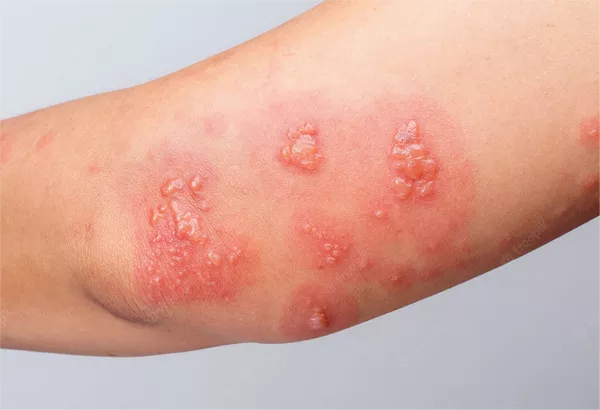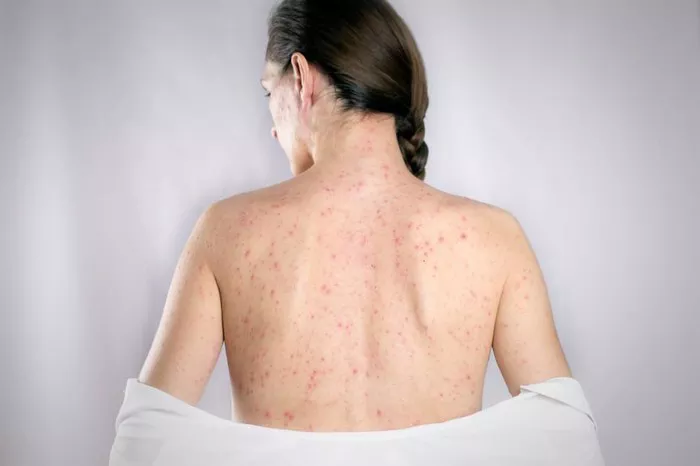Chickenpox and shingles are both caused by the same virus, known as the varicella-zoster virus (VZV). While the two conditions share some similarities, they are distinct in several important ways. In this article, we will explore the differences between chickenpox and shingles, how they are related, and what you should know about these conditions, especially in adults.
Understanding Chickenpox
Chickenpox is a highly contagious viral infection that primarily affects children. However, adults can also catch chickenpox if they have never been infected with the virus or have not received the chickenpox vaccine.
When a person first contracts the varicella-zoster virus, they develop chickenpox. This is characterized by an itchy rash that usually begins on the face and trunk before spreading across the body. The rash eventually turns into fluid-filled blisters that eventually crust over and heal.
What Happens After Chickenpox?
After a person has recovered from chickenpox, the virus doesn’t completely leave their body. Instead, it lies dormant in the nerve cells, specifically in the spinal cord and brain. Most people will never experience another episode of chickenpox after they have recovered, but the virus remains in their system. It can reactivate years or even decades later, often in response to a weakened immune system or stress.
Shingles: What Is It?
Shingles, also known as herpes zoster, is a reactivation of the varicella-zoster virus, which causes chickenpox. This reactivation usually happens when the immune system is compromised or weakened, such as during times of stress, aging, or other factors like illness or medications that suppress the immune system.
Shingles presents as a painful rash, typically affecting only one side of the body. The rash is made up of fluid-filled blisters, similar to the blisters that appear during a chickenpox infection. However, shingles tends to occur in a specific pattern along the nerve pathways, often starting with a tingling or burning sensation in the affected area. The rash typically follows a band-like pattern, often on the torso or face.
Is Chickenpox in Adults Called Shingles?
While both chickenpox and shingles are caused by the same virus, chickenpox in adults is not called shingles. Shingles only occurs after the varicella-zoster virus has reactivated in the body. It is important to understand that shingles is a separate condition from chickenpox, even though they are related.
In other words, if an adult who has never had chickenpox contracts the virus for the first time, they will develop chickenpox, not shingles. Shingles happens only after the initial chickenpox infection has been cleared, and the virus lies dormant in the body.
Differences Between Chickenpox and Shingles
While chickenpox and shingles are caused by the same virus, there are several key differences between the two conditions:
1. Age of Onset
- Chickenpox is most common in children, but adults can still get it, especially if they have never had it before or have not been vaccinated.
- Shingles typically affects older adults, especially those over 50, or people with weakened immune systems.
2. Symptoms
- Chickenpox causes an itchy rash that starts as red spots, develops into fluid-filled blisters, and then crusts over.
- Shingles causes a painful rash that appears as a stripe of blisters, often on one side of the body. The rash is usually accompanied by pain, itching, and tingling in the affected area before the rash even appears.
3. Contagion
- Chickenpox is highly contagious and can spread easily from person to person, especially through direct contact with the rash or respiratory droplets.
- Shingles is less contagious than chickenpox, but it can still be spread to someone who has never had chickenpox or been vaccinated. If the virus spreads from a person with shingles, the exposed individual may develop chickenpox, not shingles.
4. Duration
- Chickenpox typically lasts for about 5 to 10 days, with the rash going through several stages (spots, blisters, crusts).
- Shingles can last for several weeks, with the rash typically healing within 2 to 4 weeks. However, some people experience postherpetic neuralgia, which is nerve pain that persists long after the rash has healed.
5. Pain
- While chickenpox can be uncomfortable due to itching, it is generally not painful.
- Shingles is often much more painful than chickenpox. The pain associated with shingles can range from mild to severe and can last for weeks or even months.
6. Risk Factors
- Anyone who has had chickenpox is at risk of developing shingles later in life.
- The risk of shingles increases with age, particularly after 50 years old. People with weakened immune systems are also at higher risk.
Who Is at Risk for Shingles?
As mentioned earlier, shingles tends to affect older adults and those with weakened immune systems. This includes people who:
- Are over the age of 50
- Have had a bone marrow or organ transplant
- Are undergoing chemotherapy or other treatments that suppress the immune system
- Have HIV/AIDS or other conditions that affect the immune system
People who have had chickenpox are at risk of developing shingles later in life. This means that even if you had chickenpox as a child, you could still experience shingles in adulthood.
The Vaccine: Preventing Shingles and Chickenpox
Fortunately, there are vaccines available that can help reduce the risk of both chickenpox and shingles.
1. Chickenpox Vaccine
The chickenpox vaccine is recommended for all children and adults who have never had chickenpox. This vaccine helps prevent the initial infection and reduces the severity of the disease if someone does contract it.
2. Shingles Vaccine
For adults aged 50 and older, the shingles vaccine (Shingrix) is recommended to reduce the risk of developing shingles. The vaccine has been shown to be highly effective in preventing shingles and reducing the severity of the disease if it does occur.
Even people who have had shingles before can benefit from the shingles vaccine to prevent future outbreaks.
Can You Get Shingles More Than Once?
Yes, it is possible to get shingles more than once, although it is rare. Most people who experience shingles only get it once, but the varicella-zoster virus can reactivate again if the immune system becomes weakened. Those who have had shingles are still at risk of future outbreaks, especially as they get older or if their immune system is compromised.
Complications of Shingles
While many people recover from shingles without any long-term problems, there can be complications. Some of these include:
1. Postherpetic Neuralgia
This is the most common complication of shingles. It occurs when nerve pain continues after the rash has healed. The pain can be severe and long-lasting, sometimes for months or even years.
2. Vision Problems
If shingles affects the eye (a condition known as ocular shingles), it can lead to vision problems or even permanent damage to the eye.
3. Neurological Problems
In rare cases, shingles can cause inflammation of the brain (encephalitis), stroke, or facial paralysis.
4. Infections
The shingles rash can become infected with bacteria, leading to further complications.
How Is Shingles Treated?
While there is no cure for shingles, treatment can help manage the symptoms and reduce the severity of the condition. Common treatments include:
Antiviral medications: These can help reduce the duration of the illness and limit the severity of the symptoms if taken early.
Pain relief: Over-the-counter pain relievers or prescription medications may be used to reduce pain and discomfort.
Topical treatments: Creams or lotions can help soothe the skin and reduce itching.
Conclusion
Chickenpox and shingles are both caused by the varicella-zoster virus, but they are distinct conditions. Chickenpox is the initial infection, typically occurring in childhood, while shingles is a reactivation of the virus, usually in adults. Although chickenpox in adults is not called shingles, it is important to understand the connection between these two conditions.
Shingles can be painful and cause complications, but there are vaccines available that can help prevent both chickenpox and shingles. If you’ve had chickenpox in the past, you may be at risk for shingles later in life, so it’s important to speak with your healthcare provider about vaccination options. By staying informed and taking preventive measures, you can reduce your risk and manage these conditions more effectively.
Related topics:



























